The Legon Centre for Education Research and Policy (LECERP) has marked its maiden celebration of World Teachers’ Day at the University of Ghana with a focus on the intersection of artificial intelligence (AI) and dyslexia awareness in education.
Held on 6th October, 2025, the event was organised in collaboration with the Africa Dyslexia Organization and the La-Nkwantanang Madina Municipal Education Directorate of the Ghana Education Service. Celebrated under the theme “Beyond Chalkboards: AI Usage, Dyslexia Awareness, and Teachers Driving Change,” the programme brought together educational officers, school heads, teachers, improvement officers, and university faculty for a day that combined celebration with professional development — urging teachers to embrace technology and inclusivity in the classroom.
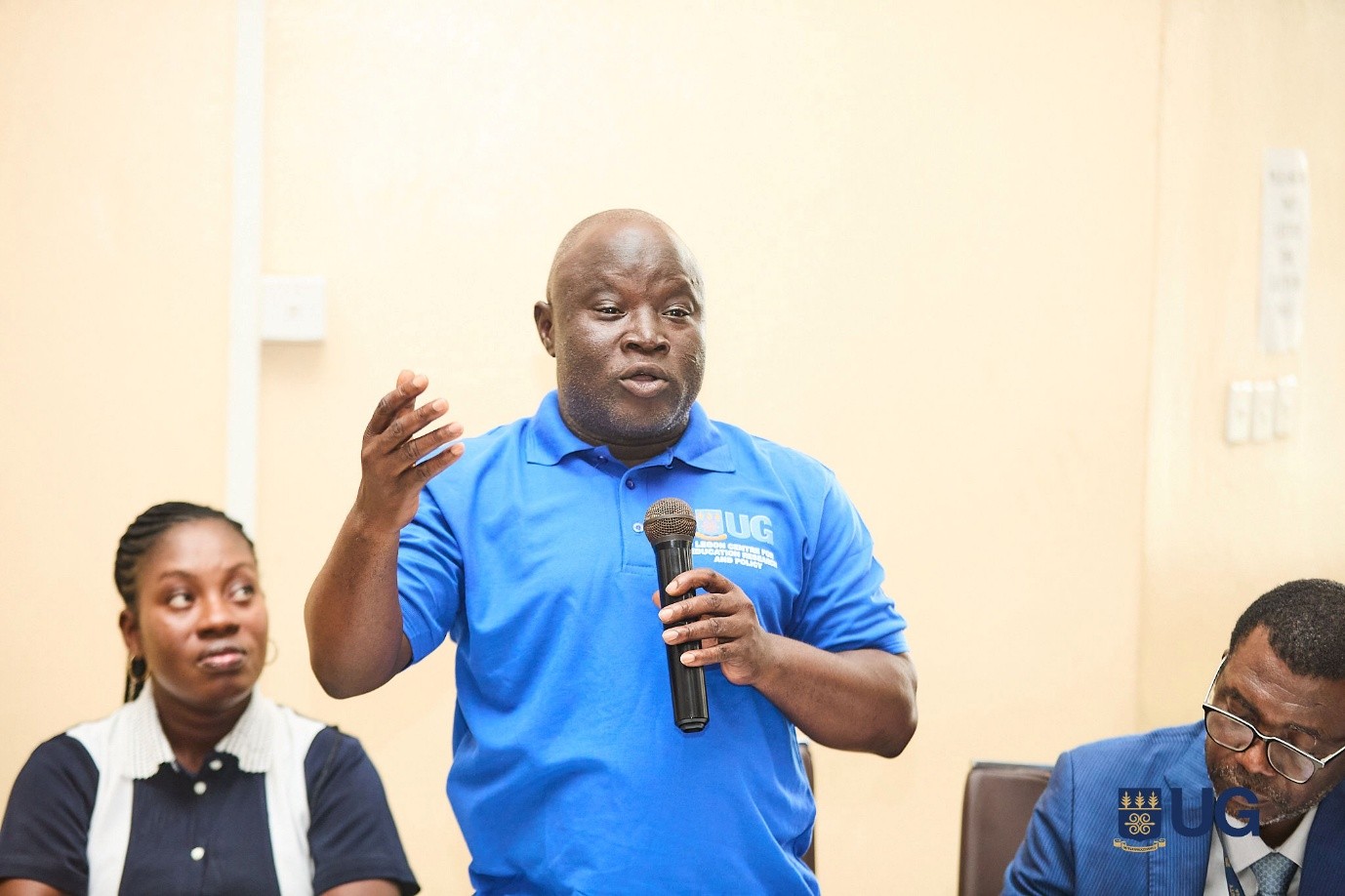
Dr. Clement Adamba, delivering his welcome address
In his welcome address, Dr. Clement Adamba, Director of the Legon Centre for Education Research and Policy (LECERP), expressed appreciation to all collaborators and participants for supporting the Centre’s first commemoration of World Teachers’ Day. He noted that the occasion was not only to celebrate the teaching profession but also to equip teachers with evolving knowledge in areas such as artificial intelligence and inclusive education.
“As the research wing of the College of Education, our mandate is to bridge the gap between research and policymaking, transforming findings into actionable evidence that empowers educators, informs decision-makers and inspires meaningful change,” Dr. Adamba stated.
He added that the celebration reaffirmed LECERP’s commitment to advancing policies and practices that empower teachers to lead the transformation toward a more inclusive and technology-enabled education landscape. He reminded participants that “every great nation is built on the dedication of its teachers, whose daily impact shapes the future of generations.”
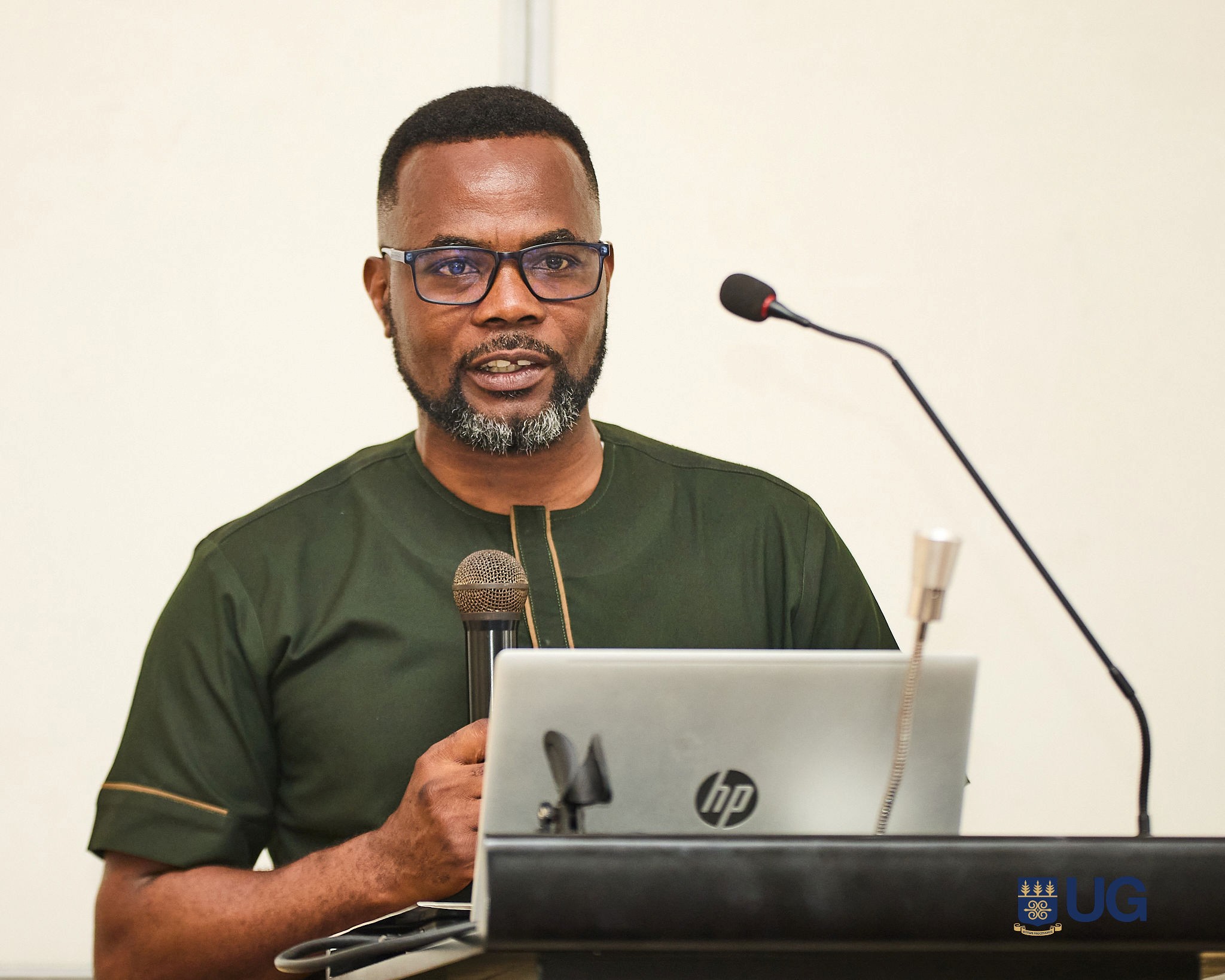
Prof. James Dzisah, delivering the opening remarks
Delivering the opening remarks on behalf of the Provost of the College of Education, Prof. James S. Dzisah, Dean of the School of Education and Leadership, commended teachers for their dedication to nurturing future generations. He said the event aligned with the University’s Strategic Plan (2024–2029), particularly Strategic Priority 2 – Impactful Research and Strategic Priority 4 – Engagement and Partnerships.
Prof. Dzisah described the theme as timely, noting that the growing influence of AI in education calls for adaptation and openness. “Emerging technologies should not be seen as threats,” he said. “Rather, they are tools that can enhance teaching, promote creativity, and make learning more accessible.”
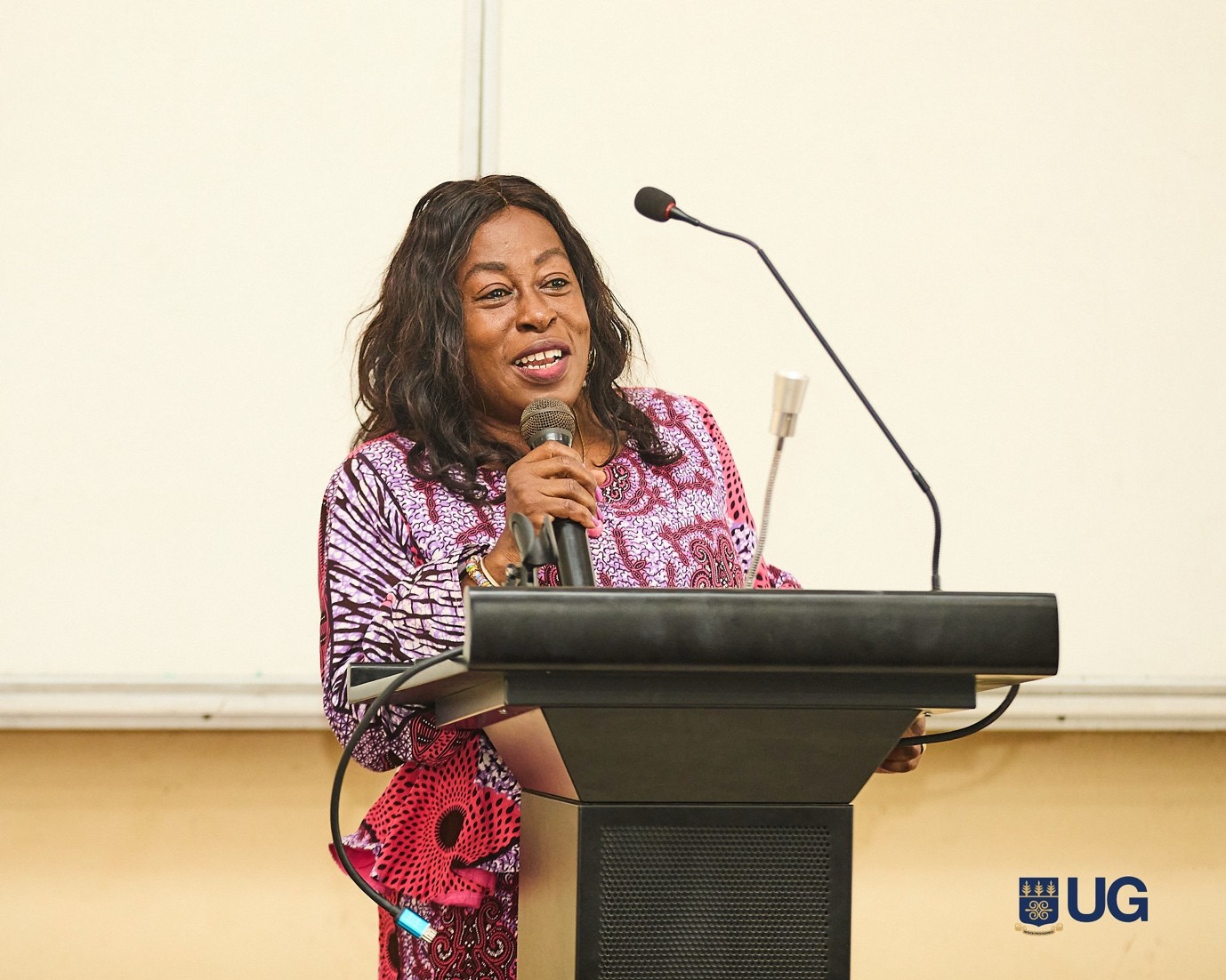
Ms. Harriet Lomotey, addressing participants
The Director of Education for the La-Nkwantanang Madina Municipality, Ms. Harriet Lomotey, also urged teachers to see AI as a complement to their expertise rather than a replacement. She underscored the importance of understanding and supporting learners with special educational needs, stressing that inclusivity remains central to effective education delivery.
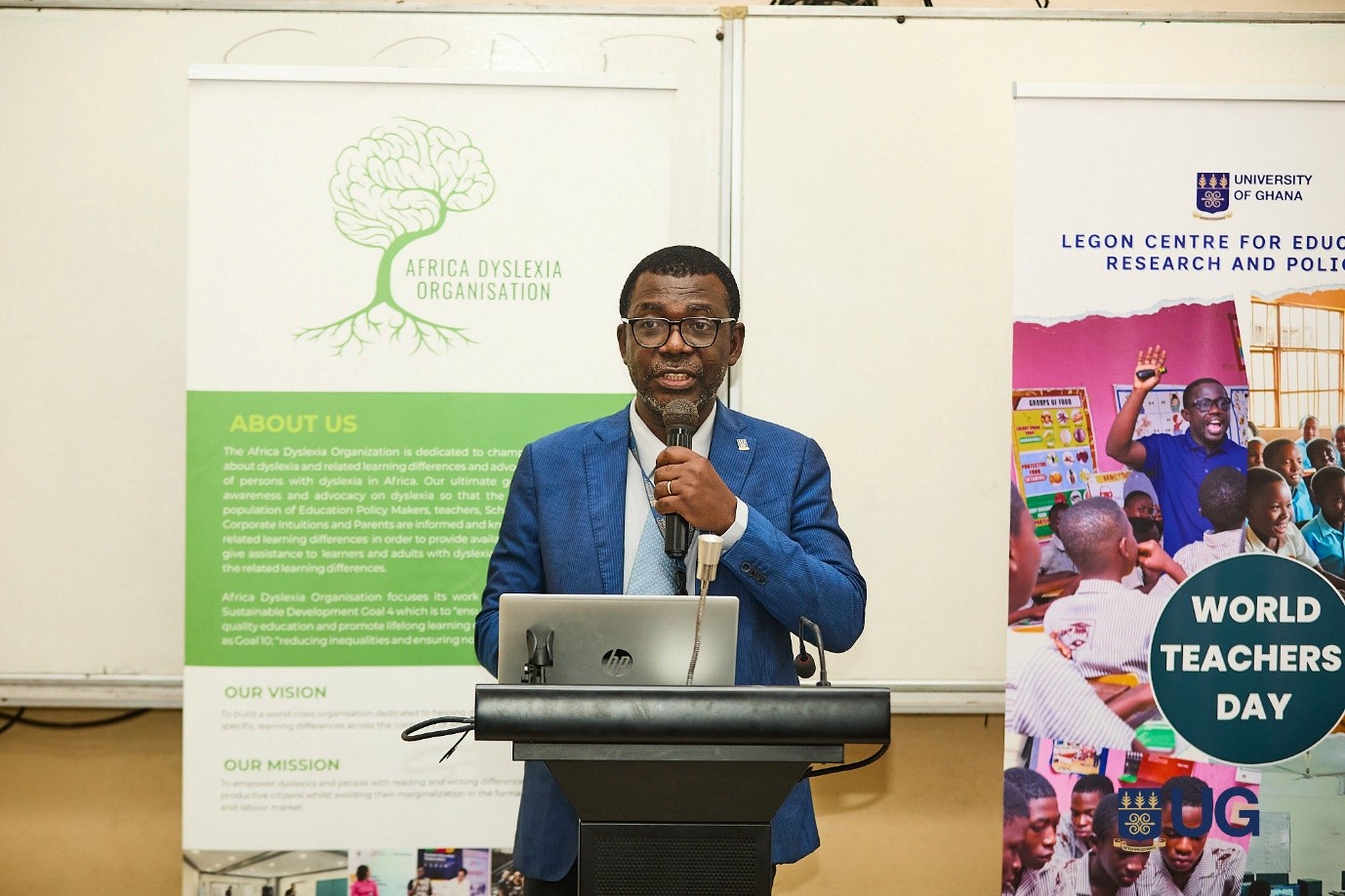
Mr. Joseph Oduro Nkansah, delivering remarks
Speaking at the celebration, Mr. Joseph Oduro Nkansah, College Registrar for the College of Education, noted that in an era where knowledge continues to evolve, it is critical for teachers to constantly upgrade their skills and integrate new technologies into their teaching. “We need to see AI and other instructive technologies not as a replacement for teachers and officers, but rather complementary to what we are doing,” he remarked.
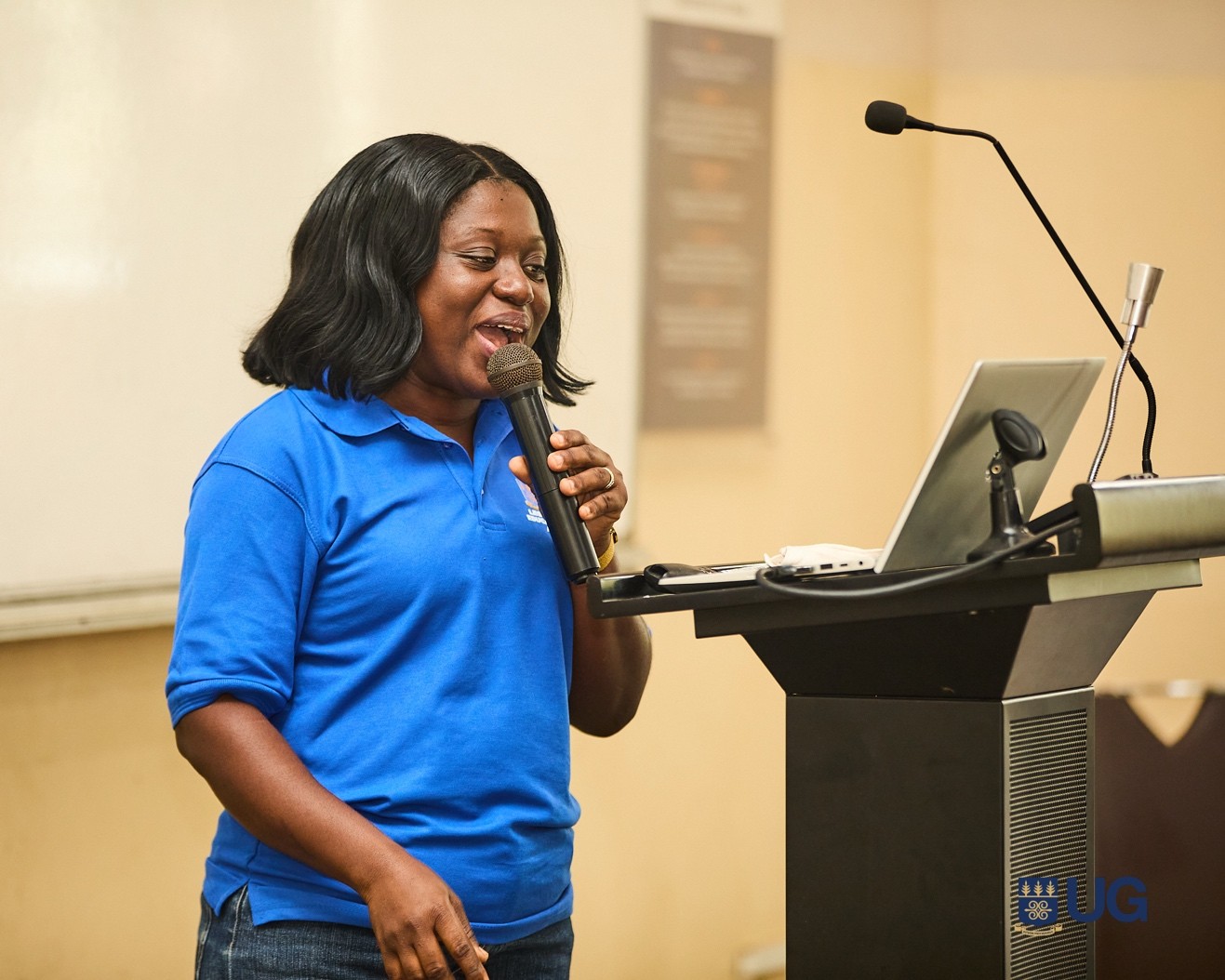
Dr. Freda Osei Sefa, delivering her presentation
Presenting findings from a recent study, Dr. Freda Osei Sefa, Research Fellow at LECERP, shared insights from research titled “Enhancing Teaching and Learning with Artificial Intelligence Technologies: Exploring the Attitudes and Perceptions of Basic School Teachers in Ghana.”
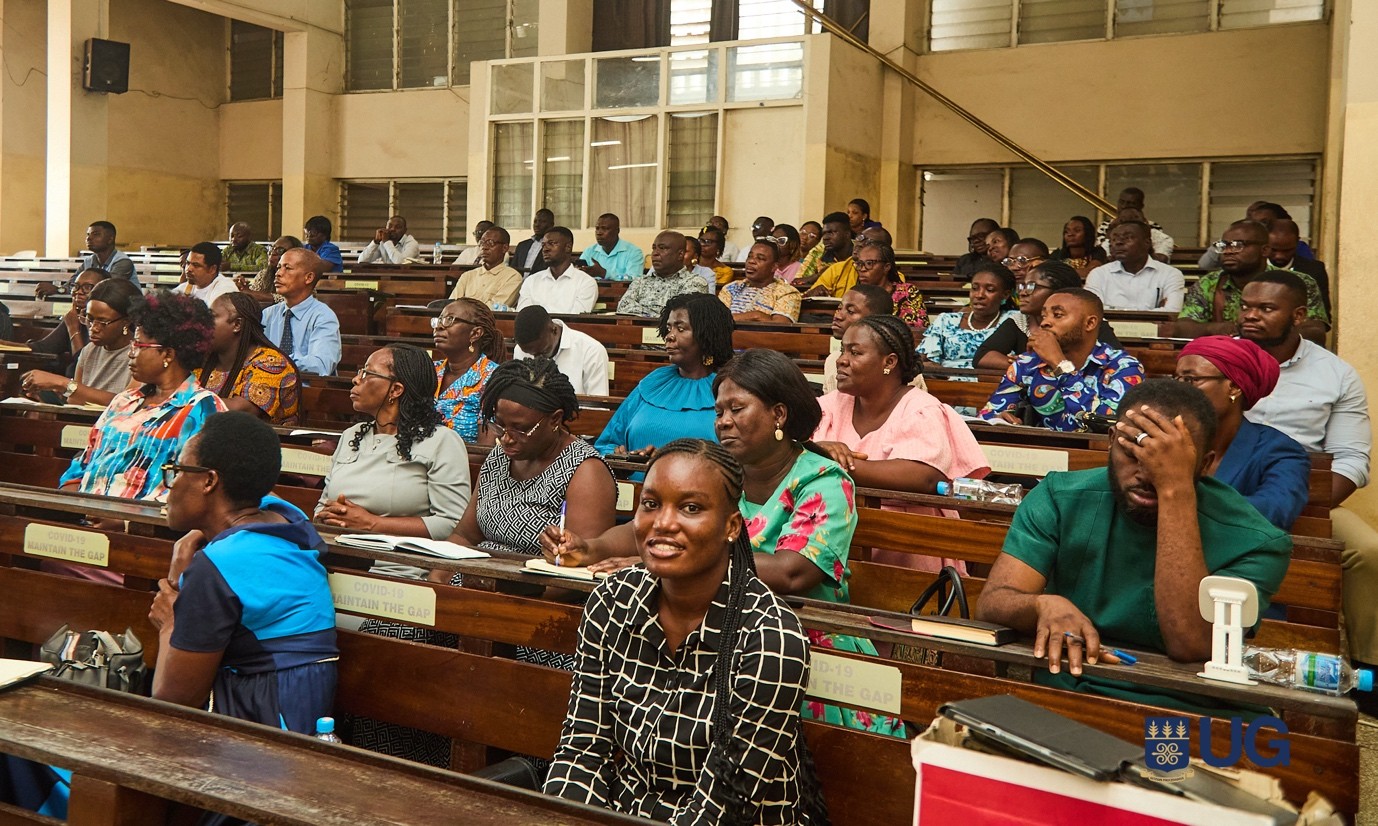
A cross-section of participants
The study revealed high levels of AI awareness among teachers, many of whom are already using platforms such as Meta AI, ChatGPT, and Copilot for lesson preparation and administrative tasks. However, she noted that inadequate training, limited infrastructure, and fear of job loss pose challenges to AI integration. Dr. Sefa recommended continuous professional development, confidence-building, and policy frameworks to guide ethical and effective AI use in schools.
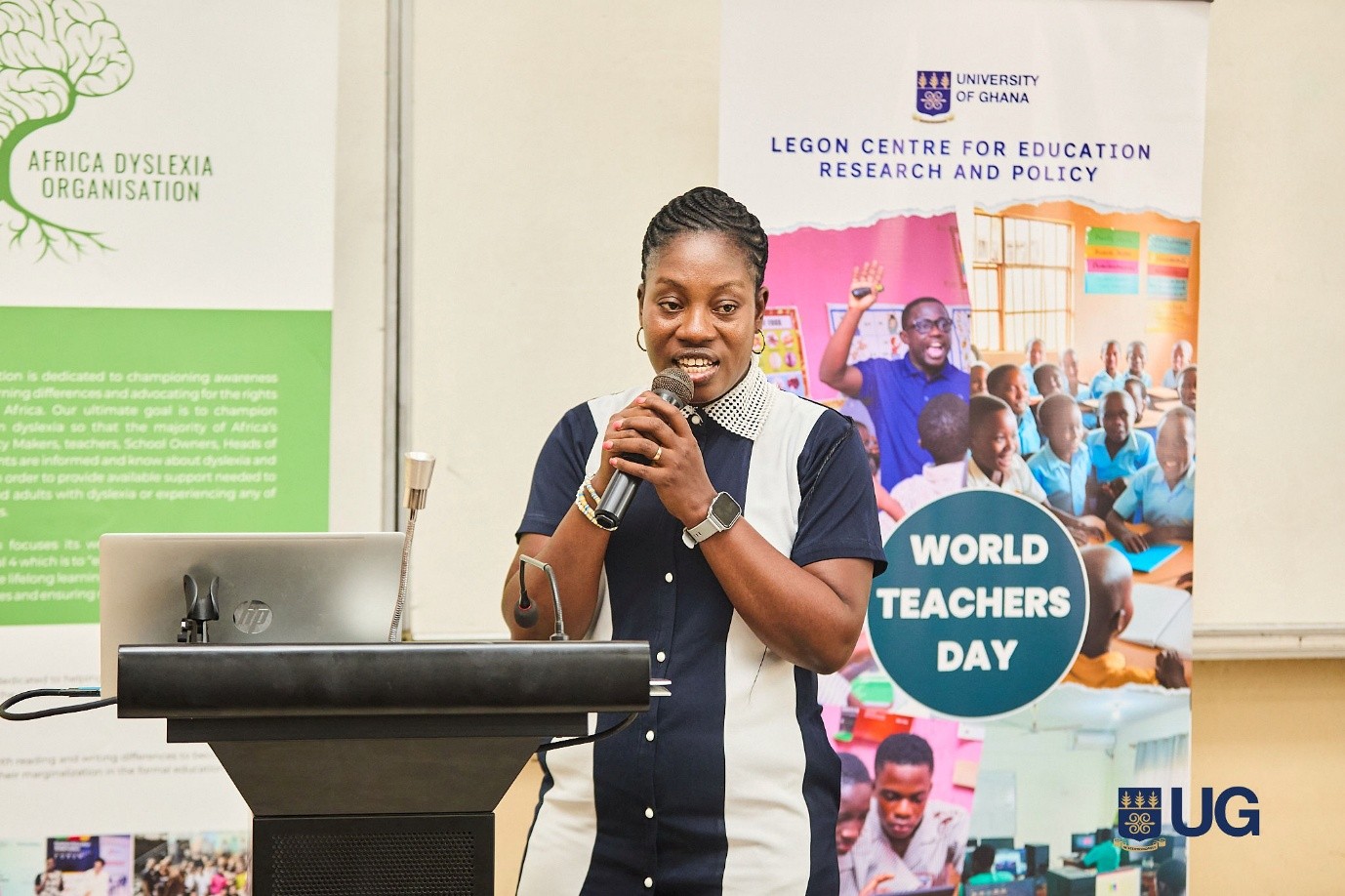
Dr. Gifty Rockson speaking at the event
In a session on dyslexia awareness, Dr. Gifty Rockson of the Africa Dyslexia Organization shed light on the learning difference, clarifying that dyslexia affects reading, writing and spelling rather than effort or intelligence. She debunked misconceptions that label affected pupils as “lazy,” urging teachers to adopt multisensory and visual teaching strategies to support learners with diverse needs. “Dyslexia is not a limitation,” she said. “It is a call for teachers to adapt their instruction to how each learner processes information.”
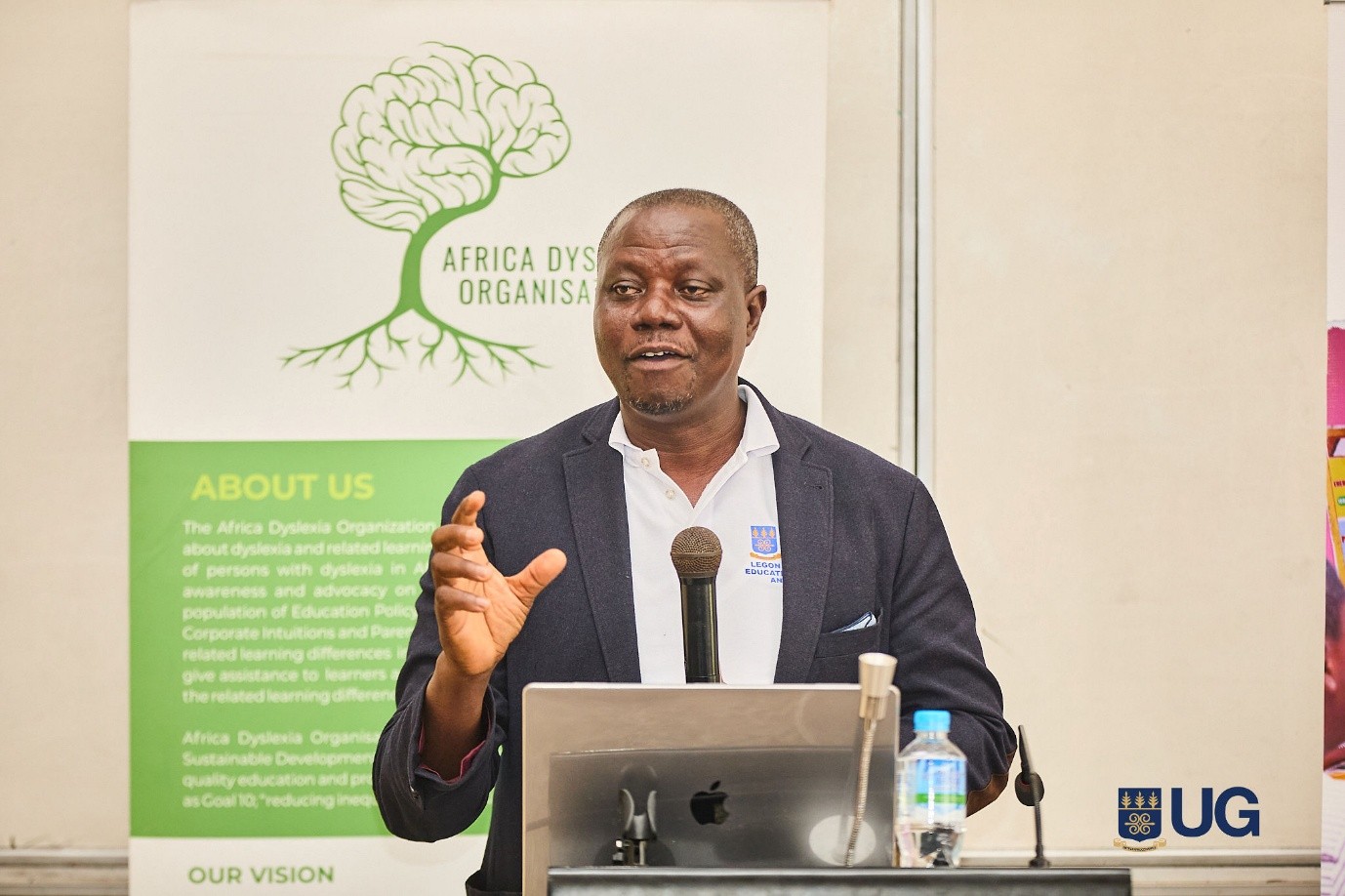
Dr. Gideon Anapey speaking to participants during the practical session
Dr. Gideon Anapey, a resource person from LECERP, led a practical session demonstrating the application of AI and digital tools in lesson planning, assessment, and school management. He encouraged teachers to adopt interactive and learner-centred approaches using tools such as cloud computing, spreadsheets and AI-driven applications. He also called for a pedagogical shift from rote memorisation to creativity and personalised learning, noting that technology could be harnessed to support learners with dyslexia.
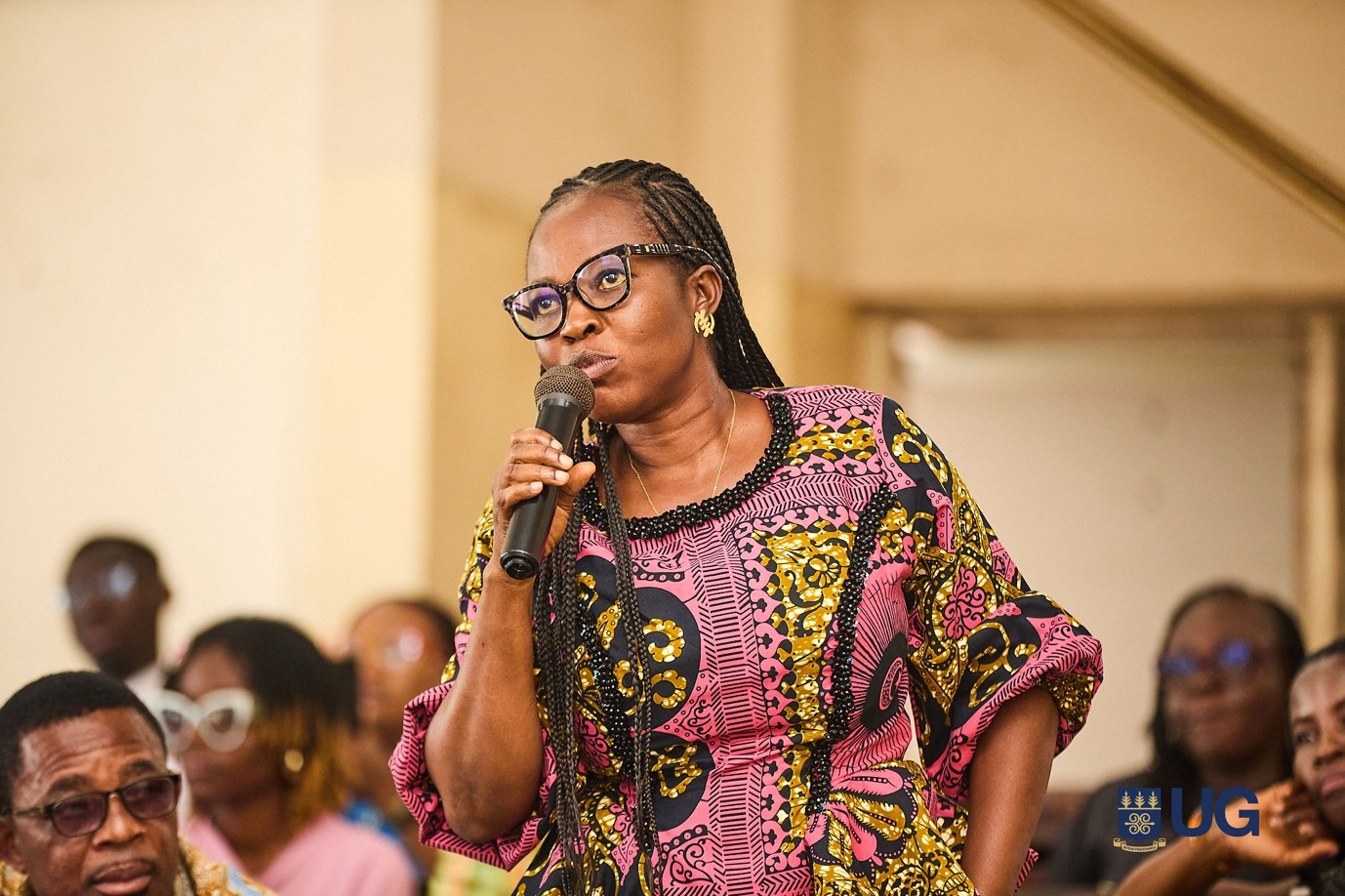
A participant asking a question during the Q&A session
The interactive Q&A session gave participants an opportunity to ask questions, share experiences, and offer suggestions. Teachers discussed challenges they face in integrating AI, shared innovative classroom practices, and expressed appreciation for the insights on dyslexia.
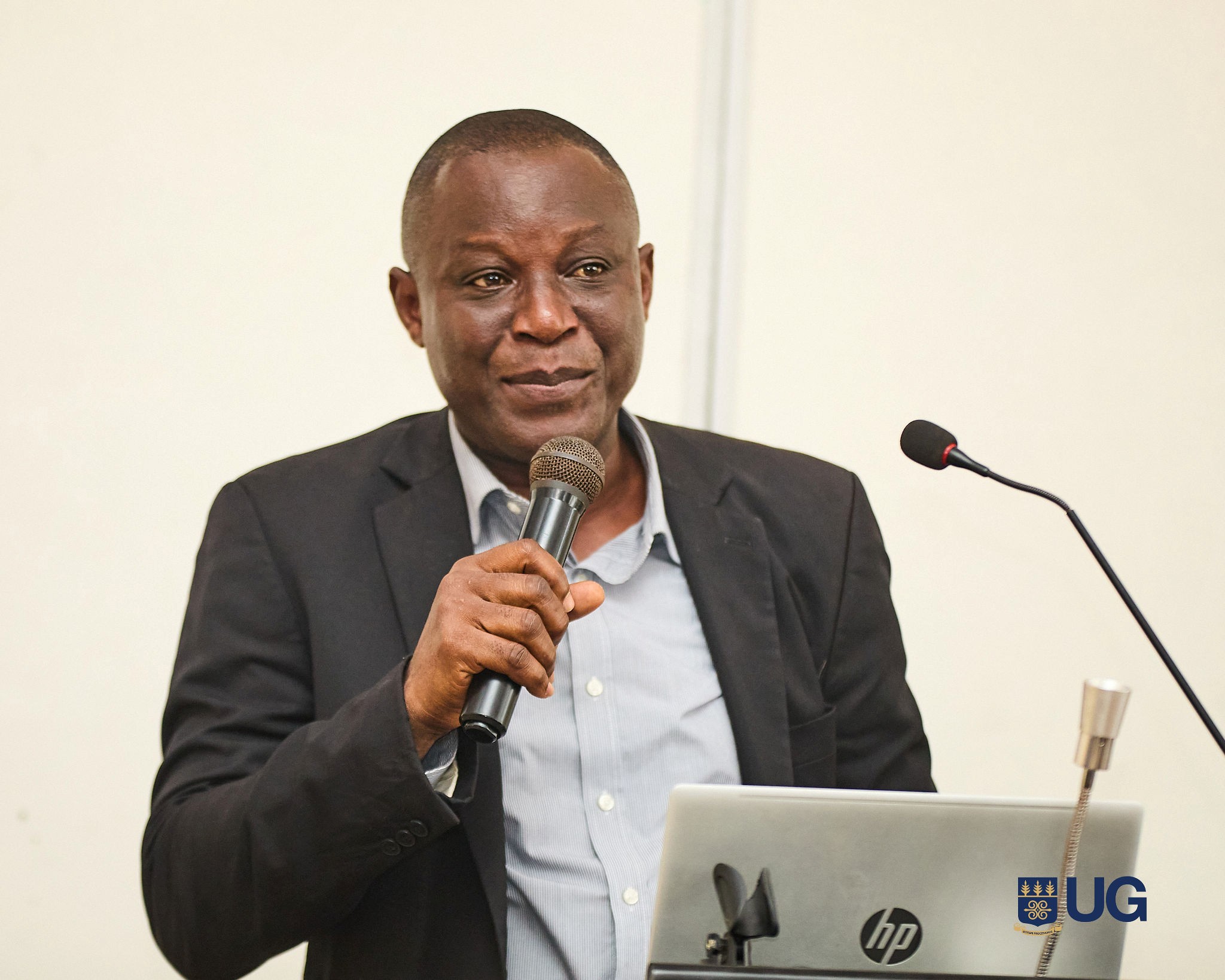
Mr. Baidoo delivering closing remarks
In his closing remarks, Mr. Joseph Baidoo, Head of Finance and Administration, who spoke on behalf of the Director of Education, reaffirmed the Directorate’s commitment to collaborating with LECERP and other educational partners to strengthen teacher training in technology integration and inclusive education. He urged teachers to apply the lessons learned to inspire learners and drive positive change in their classrooms.
